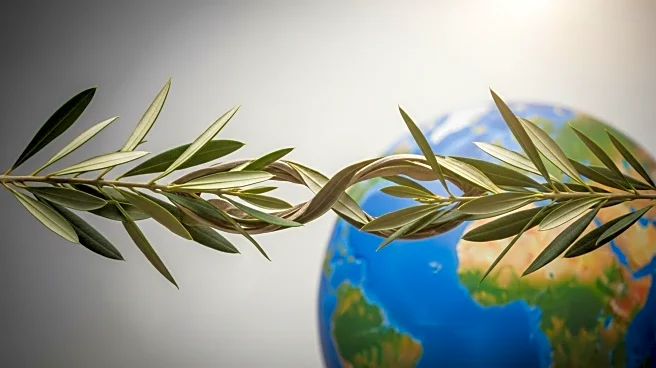What is the story about?
What's Happening?
Keir Starmer is being urged by victims of arbitrary detention to press Indian Prime Minister Narendra Modi for the release of Jagtar Singh Johal, a British Sikh activist held in India for nearly eight years without a full trial. Johal, who was in India for his wedding, was detained in 2017 and faces terrorism charges linked to the Khalistan Liberation Force, a banned organization. Despite being acquitted in one of the nine cases against him, Johal remains imprisoned, with allegations of torture and lack of credible evidence against him. The campaign group Redress, along with other victims of arbitrary detention, have written to Starmer, emphasizing the potential long-lasting consequences for UK-India relations if Johal's case is not addressed.
Why It's Important?
The detention of Jagtar Singh Johal highlights significant concerns regarding human rights and justice within international relations. The case has implications for the UK-India bilateral relationship, especially in light of recent trade and security deals. The lack of credible evidence and allegations of torture raise questions about the integrity of legal proceedings in India, potentially affecting India's international reputation. The involvement of high-profile figures like Keir Starmer underscores the diplomatic pressure and the need for accountability in cases of arbitrary detention, which could influence future policy and advocacy efforts.
What's Next?
Keir Starmer is expected to raise Johal's case with Modi during his upcoming visit to India for the Global Fintech Fest. The letter from Redress and other signatories calls for urgent intervention, suggesting that continued detention could impact India's international standing and its relations with the UK. The outcome of these discussions may influence diplomatic strategies and human rights advocacy, potentially leading to increased scrutiny of India's legal processes and treatment of foreign nationals.
Beyond the Headlines
The case of Jagtar Singh Johal may prompt broader discussions on the ethical and legal dimensions of international detentions, particularly concerning the treatment of minority groups and the use of torture. It could lead to increased advocacy for legal reforms and human rights protections, both in India and globally. The situation also highlights the role of international diplomacy in addressing human rights abuses, potentially influencing future bilateral agreements and international policies.















